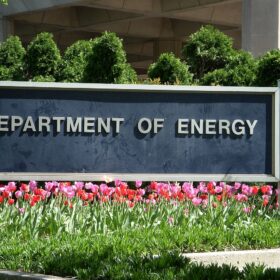Voltage Energy scores non-infringement win in latest ITC ruling
The U.S. International Trade Commission issued an initial determination finding that Voltage Energy’s new trunk-bus design does not infringe on patents held by Shoals Technologies.
Shoals secures initial ITC win in patent dispute with Voltage
The Tennessee-based EBOS company is hoping the second time is the charm in its efforts to stop Voltage, LLC from selling its trunk bus products in the U.S.
New York City files $20 million consumer fraud lawsuit against Radiant Solar over predatory sales and lending
The New York City Department of Consumer and Worker Protection is seeking $20 million in restitution and civil penalties from the city’s largest home improvement contractor.
South Carolina county court dismisses challenge to Silfab Solar manufacturing facility
A York County circuit court judge has dismissed a resident-led lawsuit seeking to halt construction of Silfab’s PV module assembly plant, ruling that the plaintiff lacked standing and failed to exhaust administrative remedies.
First Solar wins key round in TOPCon patent dispute
The federal patent office rejected separate challenges from JinkoSolar, Canadian Solar and Mundra Solar to invalidate intellectual property that First Solar claims is fundamental to the manufacturing of crystalline silicon solar cells.
Canadian Solar wins U.S. patent litigation against Maxeon
The patent infringement case was related to an unspecified TOPCon solar cell technology.
Court rules Trump Administration funding cut to clean energy projects unlawful
A federal judge determined the Department of Energy lacks the authority to claw back funds already obligated to clean energy projects.
Lawsuit targets FERC approval of SPP capacity evaluation, citing bias against solar
Environmental groups are challenging the approved Southwest Power Pool capacity evaluation rules, arguing they create market disadvantages and interconnection delays for solar projects by favoring fossil fuels.
19 states sue EPA to reinstate $7 billion of Solar for All funding
The lawsuit alleges that EPA’s cancellation of Solar for All grants violated a federal law and a provision of the U.S. Constitution, and asks the court to reinstate the grants. A second lawsuit seeks reimbursement for damages sustained by grant awardees when the grants were canceled.
New standard for U.S. Customs solar supply chain compliance
To help importers vet compliance with the Uyghur Forced Labor Prevention Act and other supply chain traceability requirements, the Solar Energy Industries Association released the Standard 101, which was recently approved by the American National Standards Institute.














